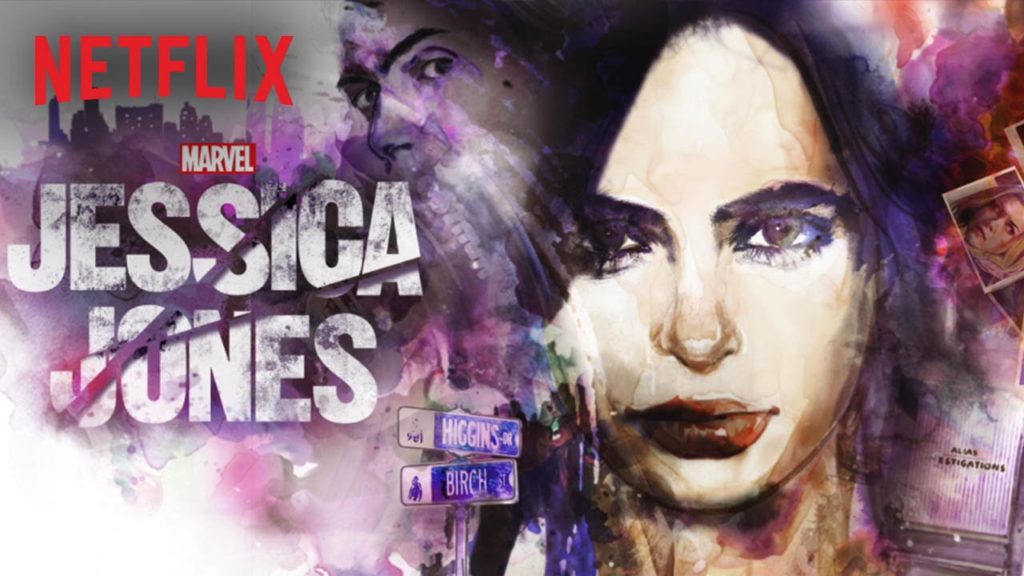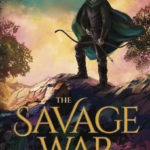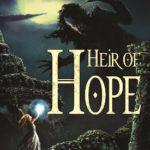Sex Scenes Clash With The Art Of ‘Jessica Jones’

It’s easy to give “artists” a pass when it comes to sex (and violence) in our entertainment, such as the new Marvel series “Jessica Jones” on Netflix. Frank Turk thinks we need to have our eyes washed out with soap in order to get rid of the wrong ideas we have about these topics and get right with the word of God. Here’s how he explains it.
Before I dive into this essay, I think it’s only fair to tell you all the ways in which I have biases regarding this subject.
The first bias, which I think is the most important, is that I grew up on comics which were all in compliance with the Comics Code Authority (CCA), and frankly they were the greatest comics in the history of the world. I don’t really care if you disagree with me about this, but if you do you are simply and irredeemably wrong — disconnected from fact and history.
If you are a fan of Stan Lee, he wrote under the constraints of the CCA, and he developed all his legendary characters under the watchful eye of the CCA. So my view of comics (and, I think, therefore art) was shaped by the boundaries of the CCA and the game which those rules formed.
My second bias is related to that, and it drives my wife and kids crazy: I think that the only thing which makes any game fun is the rules which create the game.
Let’s face it: the only thing which makes any game a game and not a brawl with a ball (or a puck) is the rule book which creates the boundary lines you play in, the goals, and the time limit which creates a beginning, middle, and end of the play.
So in my view, when we play at art, we have the same quandary: unless we understand the rule book, we really aren’t playing at art. We are instead merely acting out in a way which is incomprehensible to others and therefore we can’t really gain any cooperation or understanding with them as we do whatever it is we are doing. When there are no rules, there is no meaning.
Bias 2-B should be listed here as a hatred of book reports and gratuitous spoilers in reviews and think pieces. So be advised that if I can avoid it I will avoid disclosing details you need to enjoy (insofar as it is possible) watching “Jessica Jones” on Netflix.
The third (and final) bias I’m going to (briefly) list here, before getting on with it, is that I love people.
I think I didn’t know this about myself until about 10 years ago, but I honest-to-pete love people and always want what is best for them. This is amplified by proximity, which means that the closer you are to me, the more I really want the best for you — including and up to giving up myself for your own best interest, and giving up what is convenient and pleasurable for me to see to it that what you really need is what you really get.
For my wife and my kids, I hope it results in something they can treasure and hold onto as an analogy of a greater love which God gives them. For the rest of you (especially internet readers), it results in me talking about stuff like this.
 Following ‘Jessica Jones’
Following ‘Jessica Jones’
“Stuff like this” today is a consequence of something that happened in the last 30 days on Netflix – which is the expansion of the Marvel Cinematic Universe to include a character created by Brian Michael Bendis named Jessica Jones. In that 13-part series, Marvel1 takes a stab at an interesting genre of story-telling: the noir detective tale.
Let’s be honest: that genre is, historically, “stylish Hollywood crime dramas, particularly such that emphasize cynical attitudes and sexual motivations … that has roots in German Expressionist cinematography … [derived] from the hardboiled school of crime fiction that emerged in the United States during the Great Depression.”2 So this isn’t cookie-cutter Disney Princess fodder; this isn’t even golden- or silver-age comic book tropes. This is something else, and means to be something else.
From my perspective, that’s fine. Everything cannot be the first 100 issues of Spider-Man or The Fantastic Four. There is room in my wheelhouse for The Dark Knight Returns (the graphic novel, not the movie).
What bothers me about Jessica Jones, though, is not the darker tone or even the more-adult plot. The nudity bothers me.
So why bring it up? I mean: if I can look past the violence in this show (which is also pretty graphic – some of it obviously inspired by Tarantino), why can’t I look past the sex?
Well, that’s an interesting question. Let’s see if I can bring it home in the space we have left here today.
Great stories do not ‘need’ nudity
 First, I don’t think the answer is an either/or. I think that we can legitimately ask ourselves why we find violence so compelling as entertainment, and whether or not that’s a good thing. I think the answers are pretty clear, and I think to divert away from the problem of sexual depictions in contemporary cinema by saying, “yeah, but violence …” is changing the subject. If you cats need me to come back and unpack the problems of violent entertainment for you next time around, I’ll be pleased to do it. Today is about sex in art, so don’t divert your eyes as if this is the first time you have ever seen such a thing.
First, I don’t think the answer is an either/or. I think that we can legitimately ask ourselves why we find violence so compelling as entertainment, and whether or not that’s a good thing. I think the answers are pretty clear, and I think to divert away from the problem of sexual depictions in contemporary cinema by saying, “yeah, but violence …” is changing the subject. If you cats need me to come back and unpack the problems of violent entertainment for you next time around, I’ll be pleased to do it. Today is about sex in art, so don’t divert your eyes as if this is the first time you have ever seen such a thing.
Second, let’s face it: our society has turned sex into a very cheap and easy thrill, and not for any good reasons.
The obvious overarching reason is that there is a faction of Western Civilization which has a strange compulsion to destroy itself. It has been working since some time in the late 19th century (maybe just a little earlier) to take everything which was creating a great civilization and tarnish it with all manner of half-truths in order to tear it down and cause people to doubt that it is worth having or saving.
Among those half-truths has been the question of whether or not any kind of western “traditional” sexual morality (which is actually the morality of marriage and the family) is good for people or oppressive and used to subjugate one sort of people or another.
The irony is that when you actually do approach the place where the wall used to be and look back into the ruins, nobody can tell you if there is anything good or bad anymore. Divorce, or course, is now merely morally neutral and while maybe a little sad for some people it is just something adults do. That means sex itself is at worst morally neutral, and so all manner of sexual expressions are merely morally neutral so that women or no longer protected from men, children are no longer protected from anyone, and any claim that any sexual act is somehow untoward is met with the kind of scoffing sound one hears when one enters the cat lady’s house and someone says, “how many cats are there in here?”
Sex is now cheap in our society — and this is why is can be used cheaply, for instance, in “Jessica Jones.”
As far as Art goes, there’s nothing artistic or intimate about the way sex is portrayed in this series: it is presented to the viewer as not much at all. Jessica’s alcoholism is far more interesting than her sexual exploits; Trish’s underdeveloped history as a child star and her teen years growing up with Jessica are far more interesting for these stories than her romping around.
If sex is actually so personal and intimate and necessary for the development of these characters, why is it treated with less care than drinking, less care than even drug abuse, less care than the weird relationships of Jessica’s neighbors?
As we consider that, consider this: There are relationships and contexts in this show which are far more sexually charged than the relationship between Jessica and Luke, and none of them are sexually explicit on screen. The love triangle in Jeri Hogarth’s office is the example that comes immediately to mind — there is literally no sex ever shown in that conflict, yet it is clearly and openly a sexual conflict. It has real sexual tension but almost nothing which is sexually graphic.

Kilgrave was only seeking a new companion for adventures all across space and time.
How can one rightly say that the art was damaged by a lack of skin when in fact the art was far better because of the absence of skin?
More importantly, the whole creepy vibe of the relationship between Jessica and Kilgrave was summarized and planted in the viewer’s mind by one scene in which Jessica imagines of hallucinates that Kilgrave licks her face. The sort of sexual horror in that moment could not be replicated by showing more skin.
So, just to be clear: I grew up reading comics full of skin-tight costumes, male and female. I’m in favor of know who is male and female in a story (as unpopular as this view might be, the classic Heinlein story “All You Zombies” notwithstanding). What I am not in favor of is the so-called necessity of nudity in art, especially the utterly gratuitous use of sex and nudity in this show.
This sort of talk in this distressed age we live in gets a lot of eye-rolling and hand-waving, I know. I look like an old Christian prude by saying these things, but I want the reader to think through something with me.
Imagine for a moment two couples from your real life. Imagine on the one hand the couple you think are, aspirationally, the happiest and most loving couple you know (which, I am sure, will not be the same degree of joy and love in all cases). Now on the other hand, think of another couple who are, frankly, the bad example — the ones you worry about and hope will someday either separate or resolve their inability to get along. Now as you think about these two couples, think for a minute about all the ways in which you know that they are what they are. Think of all the ways in which you know what kind of relationship they really have. From my perspective, this is the art of their relationship — the ways they express to each other (and therefore sort of passively to other people) how they really feel and they really are connected.
Here’s something I think you have never considered before: even if you made a list of the top 25 signs from both, not one of them would be that you had seen them naked together. The art of their real relationships is really expressed by keeping those things which are intimate as intimate, and they keep sex private for good reasons.
If this is true for the real relationships you know and truth in the real world, what makes you think that Art has any right to be more transgressive than real life is?
Look: At the end of this (or maybe at the beginning of it in Christian ethics), there is a revealed word to us about human sexuality which Jesus spells out for the Pharisees when they try to trap him into making a legalistic argument about divorce. In His view, God made human sexuality for humans, but not for public consumption. It is a private thing, intended to join two people together as one body, one life, and to create new life. It is supposed to be about the kind of love which keeps the world fruitful and full.
When we allow ourselves to uncritically see it used for something that’s not even savory entertainment, I think we are giving up the rules of the game which, from the very beginning, were meant for our good. It’s not merely comic books and movies about comic books which get worse when we overlook this sort of thing. It is our own lives, and our own ability to separate truth from falsehood, and to keep holy what God has said is supposed to be holy.
- Which is to say Disney, since they are the parent company. ↩
- Wikipedia entry for “film noir”. ↩











































Bravo! Well stated. I stopped watching this show part way through the first episode, not because I’m a prude, but because the sex scene was so unnecessary it affronted me, never mind exposing my children to it. I wasn’t even aware it was on its way, so it took my wife and I by surprise.
And here I was hoping to enjoy the expansion of the MCU. *Sigh*
I remember the day when the ‘gratuitous sex scene’ was my primary reason for watching a movie or enjoying a story. Without it, I’d be kinda mad.
I’m afraid much of our world is as shallow as I was, especially those purchasing movies, etc.
I agree with you on this. I would also love to hear your take on the violence issue. That is ignored far too often, I think.
Don’t be a drama queen, Tribble-ous.
Administrators’ note: Two above comments above were deleted because they were not relevant to the article.